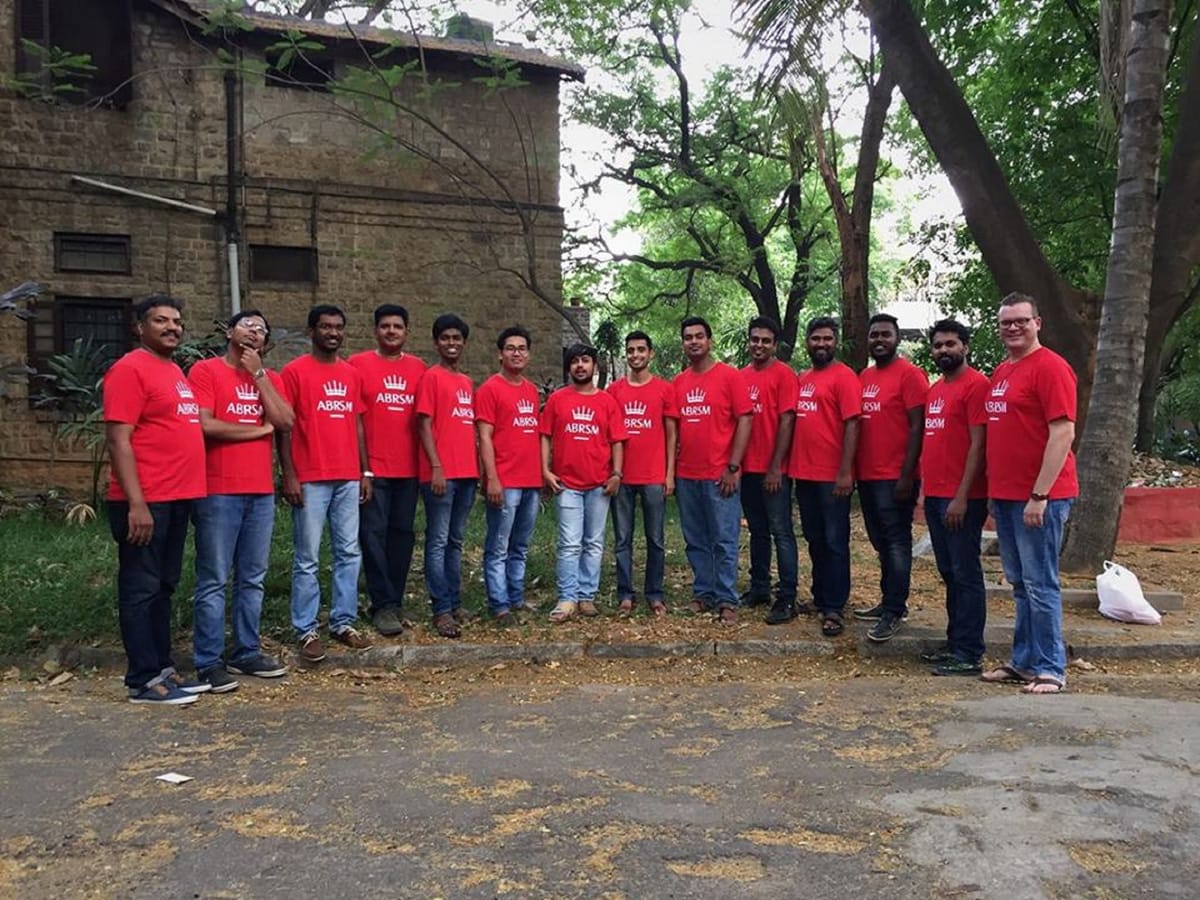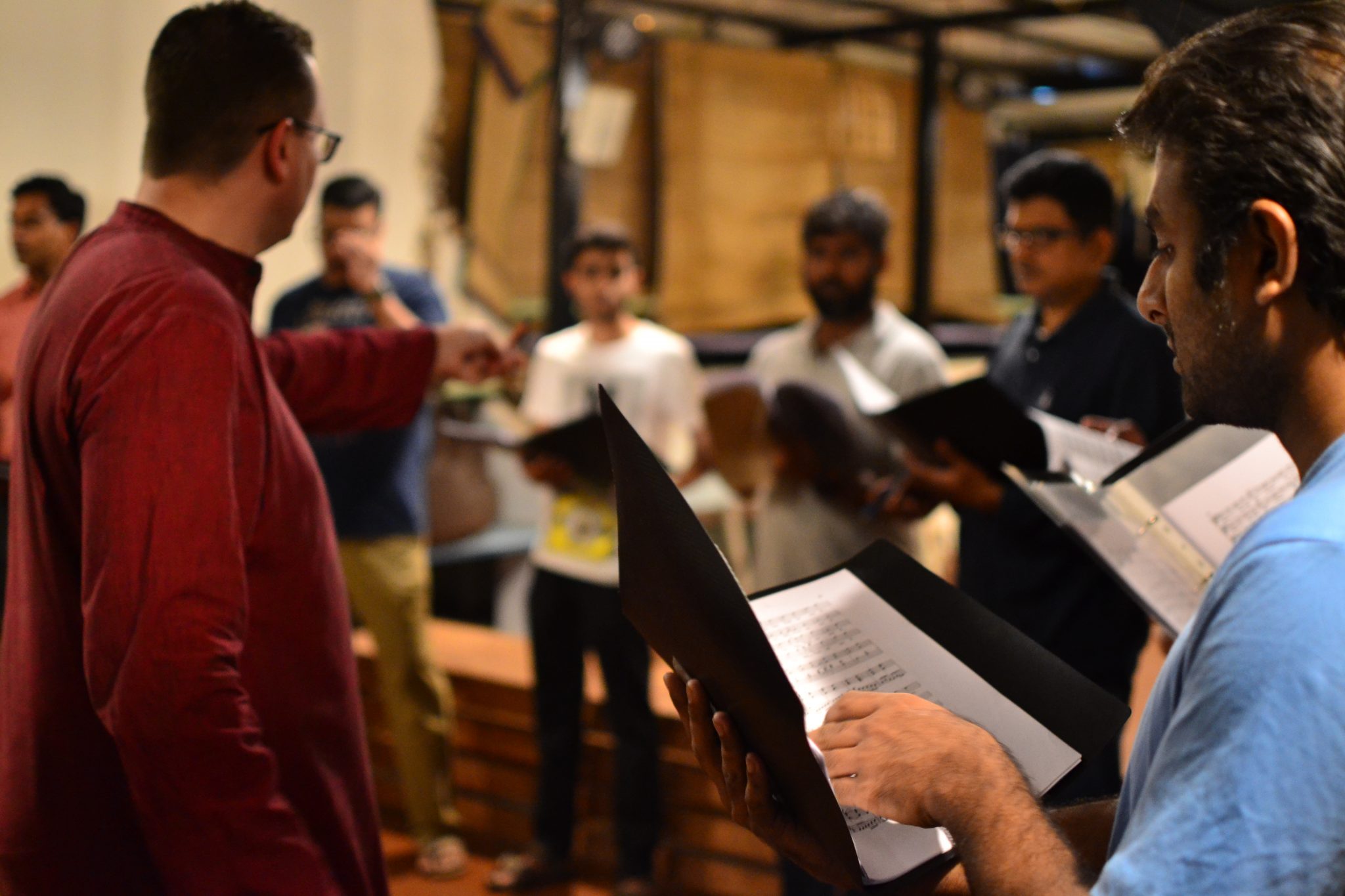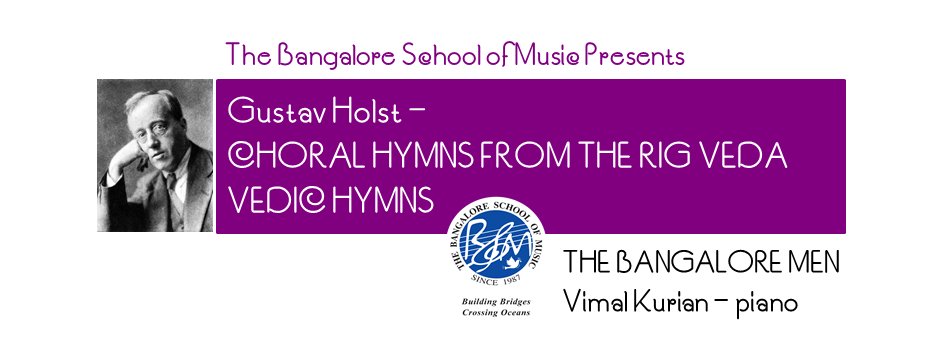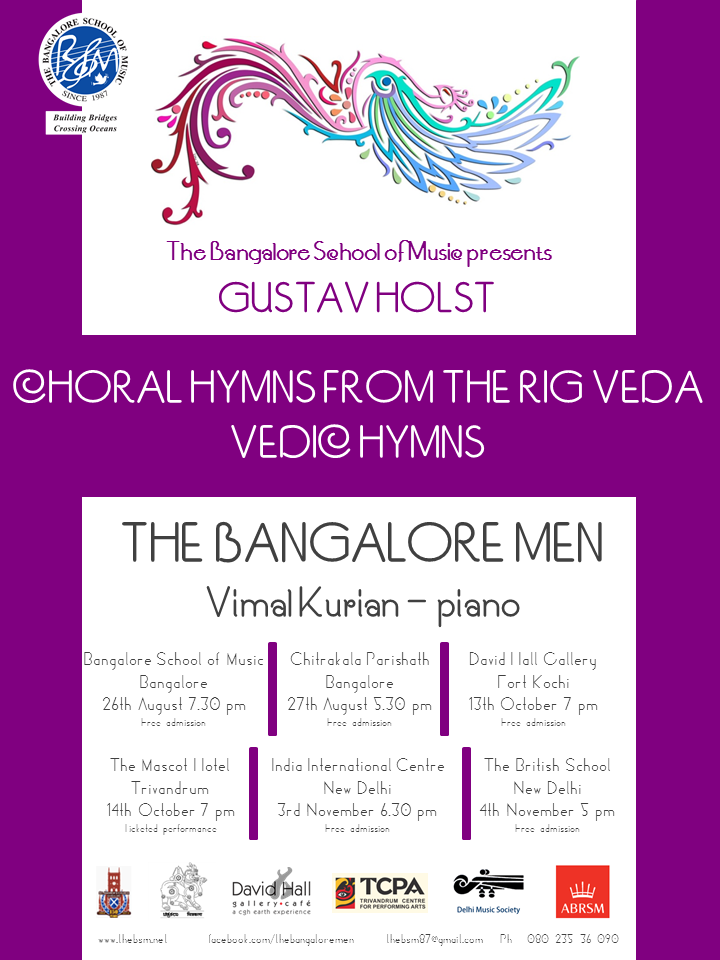Thoughts on Choral Hymns from the Rig Veda

The thought process about “what to do next” with your choir is always fun and inspiring. There are so many factors to be taken into account – difficulty level, language, sacred or secular, acappella or with instruments and so on.
In February, we were just finishing our Schubert-concerts, as well as the Vivaldi Gloria, and were just starting to work on the collaboration with the India Youth Orchestra on Beethoven’s 9th Symphony. But the question was – what would be our next “own” project?
Given the music we have done so far, I realised that we haven’t done much in English, most of the things done, have been in German or in Latin, and so, one parameter was set. The next wish I had, was to do a programme, either acappella or with piano. It always makes it easier to take the concert to other venues. The third idea I had was to try to bridge the West and the East – by doing music that was rooted in the Western classical tradition, but could also be familiar for an Indian audience. Carnatic cross-over? Gregorian and Hindustani? Lots of ideas came to mind, but nothing felt really “right”.

So one afternoon, while browsing through the Choral Public Domain Library (cpdl.org), I came across a newly uploaded piece, written for male voices, and titled Hymn to Indra. Given the wishes above, this sounded promising and interesting! When I was going through the score and listening to the midi-file, I realised that this was spot on. The piece was one of the songs; part of the four-group collection Choral Hymns from the Rig Veda, by British composer Gustav Holst. All the pieces had English text, translated from Sanskrit by the composer himself, and put to music in the Western classical tradition, but rarely performed these days. It has been more than a century since they were composed.

In the end of April, the choir started working on the music. The tone language is very different from what we have done in the past, with clear influences from Indian classical music and also with modern influences, making it challenging in its own way. Group one of The Hymns is written for mixed voices, groups two and three for female voices and group four for male voices. We decided quite quickly to perform groups two to four, since the descant settings can easily be done with male voices as well.
Setting out any new programme requires a holistic approach to the music. In which context was the music composed? How did war, social situation and so on affect the composer? The era in which the Choral Hymns from the Rig Veda was composed (1908-1912), was an unsettling period in Europe, with England breaking away from the Edwardian era, World War One round the corner and a general fin de siecle atmosphere. This is prominently audible in the compositions, which are in their own way eerie and unsettling, with some also displaying the forward-striving will and desire.
The Bangalore Men are happy and excited to present this musical treasure to the audience in India. Not only is it a unique confluence of West and East, it is also beautiful music, well representing the time it was written in. Giving ourselves the possibility to perform this music is our tribute to our Indian heritage and also one more step in our journey to not only present good music, but also to preserve our musical heritage.
The programme also includes two songs from Holst’s Vedic Hymns for solo voice and piano, two piano solos and recitals of poems by Kipling and Tagore.
A total of six performances are planned, with two in Bangalore during August-end, two in Kerala in mid-October and two in Delhi during the beginning of November. Our collaborating pianist this time, is the talented Vimal Kurian.
The concerts are presented by The Bangalore School of Music, in kind collaboration with Karnataka Chitrakala Parishath, David Hall Art Gallery Fort Kochi, Trivandrum Centre for Performing Arts, Delhi Music Society, The Associated Board of the Royal Schools of Music and The British School New Delhi.
For more information, visit facebook.com/thebangaloremen






